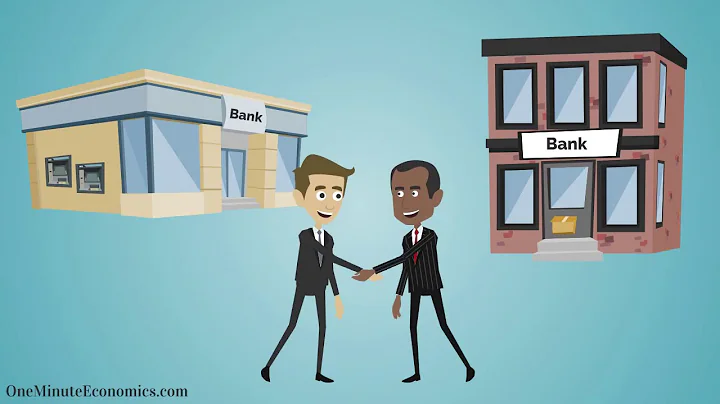What happens when the federal funds rate changes?
When the Fed increases the federal funds rate, it typically pushes interest rates higher overall, which makes it more expensive for businesses and individuals to borrow. The higher rates also promote saving.
When a Fed rate hike happens, what does it mean for you? “Expect to pay more on the interest charges from your credit card company, and auto loans and mortgages will also become more expensive,” says Ken Tumin, LendingTree's senior banking industry analyst.
As a general rule of thumb, when the Federal Reserve cuts interest rates, it causes the stock market to go up; when the Federal Reserve raises interest rates, it causes the stock market to go down. But there is no guarantee as to how the market will react to any given interest rate change.
Higher interest rates can make borrowing money more expensive for consumers and businesses, while also potentially making it harder to get approved for loans. On the positive side, higher interest rates can benefit savers as banks increase yields to attract more deposits.
With profit margins that actually expand as rates climb, entities like banks, insurance companies, brokerage firms, and money managers generally benefit from higher interest rates.
Central banks set benchmark interest rates to guide borrowing costs and the pace of economic growth. Lower rates spur growth while higher ones restrain spending, investment, and stock market valuations. If rates rise too quickly, demand may decline, causing businesses to reduce output and cut jobs.
A rise in interest rates automatically boosts a bank's earnings. It increases the amount of money that the bank earns by lending out its cash on hand at short-term interest rates.
Money becomes less available because lenders either have to lend at a loss or raise their own short-term interest rates to make a profit on their loans. If the rate is decreased, money becomes more readily available, and short-term interest rates sink.
The Fed trades in securities, and every security has a price. Hence, if the Fed wants to take money out of circulation they "buy" dollars, by selling securities. At the market price there will by definition be people who are willing to give their money to the Fed in return for securities.
At its second gathering of 2024, held March 19 and 20, the Federal Reserve once again declined to adjust interest rates. It similarly held rates steady after its inaugural 2024 session in January. The federal funds target rate has remained at 5.25% to 5.5% since summer 2023, the highest it's been in over 20 years.
What to buy when interest rates fall?
- High-yield investments.
- Bond ETFs.
- Preferred stock.
- REITs.
- Housing stocks.
- Health care.
- Real estate.
- Materials.
- Energy.

One sector that tends to benefit the most is the financial industry. Banks, brokerages, mortgage companies, and insurance companies' earnings often increase—as interest rates move higher—because they can charge more for lending.
Inflation allows borrowers to pay lenders back with money worth less than when it was originally borrowed, which benefits borrowers. When inflation causes higher prices, the demand for credit increases, raising interest rates, which benefits lenders.
Higher interest rates typically have two effects on the housing market that can help drive down prices: They price some buyers out of the market, which is good for the buyers who remain, and they typically have the effect of putting downward pressure on housing prices, which is good for buyers.
Raising rates may help slow spending by increasing the cost of borrowing, potentially reducing economic activity to slow inflation down. Raising rates may also encourage saving, as money in a savings or CD account earns more interest than in a low rate environment.
- First Republic Bank (FRC) . Above average liquidity risk and high capital risk.
- Huntington Bancshares (HBAN) . Above average capital risk.
- KeyCorp (KEY) . Above average capital risk.
- Comerica (CMA) . ...
- Truist Financial (TFC) . ...
- Cullen/Frost Bankers (CFR) . ...
- Zions Bancorporation (ZION) .
The rise in rates since the Fed's first post-Covid boost to the Fed funds rate in March 2022 had left banks with trillions of dollars of bonds written at lower rates before last year, whose value fell as rates rose. That opened precarious holes in the balance sheets of some banks, and fatal ones for banks that failed.
The interest rate for each different type of loan depends on the credit risk, time, tax considerations, and convertibility of the particular loan.
While the federal funds rate doesn't directly impact consumers, it does eventually trickle down to consumers by influencing interest rates on consumer products like credit cards, mortgages, home equity loans, and student loans.
What stocks to buy when interest rates rise?
Investing in rising interest rates can be done by investing in banks and brokerage firms, tech and healthcare stocks, and companies with large cash balances. You can capitalize on higher rates by purchasing real estate and selling off unneeded assets.
Tighter credit conditions typically lead to a slowdown in loan growth — a frequent precursor to an economic slowdown, if not a more pronounced downturn.
U.S. Government debt is sold in the form of securities to both domestic and foreign investors, as well as corporations and other governments. U.S. securities issue Treasury bills (T-bills), notes, and bonds, as well as U.S. savings bonds.
Government backs the money supply.
In the United States, the money supply is backed up by the government, which guarantees to keep the value of the money supply relatively stable. Such a guarantee depends mostly upon the effectiveness and management of silks of the government with regards to the money supply.
Just as Congress and the president control fiscal policy, the Federal Reserve System dominates monetary policy, the control of the supply and cost of money.